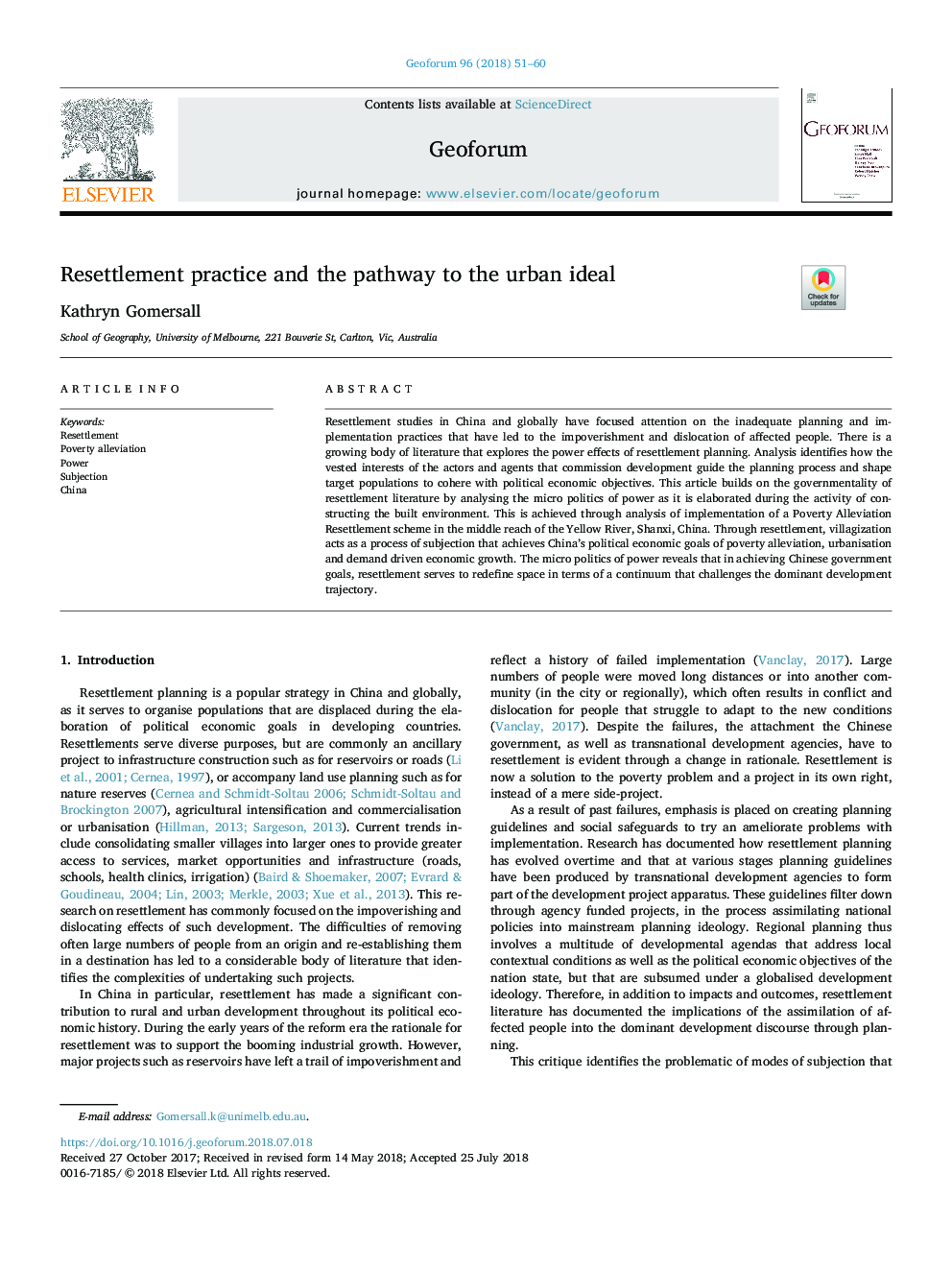| Article ID | Journal | Published Year | Pages | File Type |
|---|---|---|---|---|
| 7353235 | Geoforum | 2018 | 10 Pages |
Abstract
Resettlement studies in China and globally have focused attention on the inadequate planning and implementation practices that have led to the impoverishment and dislocation of affected people. There is a growing body of literature that explores the power effects of resettlement planning. Analysis identifies how the vested interests of the actors and agents that commission development guide the planning process and shape target populations to cohere with political economic objectives. This article builds on the governmentality of resettlement literature by analysing the micro politics of power as it is elaborated during the activity of constructing the built environment. This is achieved through analysis of implementation of a Poverty Alleviation Resettlement scheme in the middle reach of the Yellow River, Shanxi, China. Through resettlement, villagization acts as a process of subjection that achieves China's political economic goals of poverty alleviation, urbanisation and demand driven economic growth. The micro politics of power reveals that in achieving Chinese government goals, resettlement serves to redefine space in terms of a continuum that challenges the dominant development trajectory.
Related Topics
Social Sciences and Humanities
Economics, Econometrics and Finance
Economics and Econometrics
Authors
Kathryn Gomersall,
